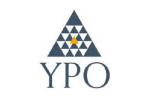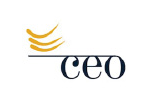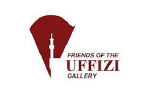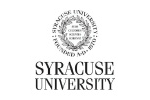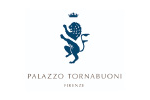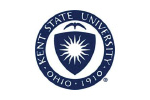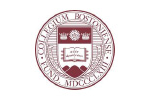



ONLINE HISTORY COURSE
The Chymical Wedding: Alchemy and Art, Medicine and Magic in the Middle Ages and Renaissance
LIVE HISTORY COURSE with Dr. Jeremy Wasser
Dates: May 11, May 18, May 25
Schedule: Wednesdays
Time: 2:00 – 3:15pm ET | 11:00am – 12:15pm PT |
7:00 – 8:15pm London
Contact Hours: 4.5 Hours
ONLINE HISTORY COURSE
The Chymical Wedding: Alchemy and Art, Medicine and Magic in the Middle Ages and Renaissance
Course Description:
Alchemy was about much more than the search for the “Philosopher’s Stone” and the secret of transmuting base metals into gold. Alchemists were chemists before there was the modern science of chemistry. Before those medical disciplines had been formalized, alchemists were pharmacologists and toxicologists. They were healers and physicians of both the body and the soul. The alchemical masters viewed the body holistically. They were on a quest to understand the nature of the body and the influences of the natural world (the macrocosm) in the lives of human beings (the microcosm).
The course will start by tracing the origins of alchemical thinking and review the science and philosophy of ancient practitioners (some of whom we know by legend only). Course content will explore how later alchemical masters, such as Paracelsus, contributed to the evolution of alchemy into a holistic model of the nature of the human body. Physicians at this time were trained in the astrological connections to anatomy and medicine. However, this new holistic approach allowed alchemy to contribute to a novel logical framework for both diagnosis and therapy.
Lectures will examine how alchemical practitioners conceived of disease and how they attempted to use alchemy to “transmute” patients back to health. We will trace the roots of modern chemistry and medicine back to their alchemical origins. A selective review of the relevant alchemical literature will be referenced, along with analyses of the many Medieval and Renaissance artworks illustrating alchemical principles.
Instructor:
Jeremy Wasser, Ph.D. is an Associate Professor of Physiology at Texas A&M University. Dr. Wasser serves as the program leader for study abroad programs in Germany, focused on the history of medicine, providing future doctors and biomedical science researchers with a foundation in physiology and the medical humanities. Along with his scientific publications he has written and lectured on the culture of disease, the history of public health and health policy, the history of human experimentation, and the role of physiological education in contemplative practices. Additionally, Wasser’s training in opera and theatre inform the unique personas that he creates for lectures in the history of medicine and performances related to science and storytelling.
Virtual Classroom: Full access to an online educational platform with discussion forum, videos of recordings, syllabus, and reading list.
Location: LIVE INTERACTIVE ON-LINE HISTORY LECTURES
Optional Readings:
Readings to be provided to students in PDF format prior to the beginning of course.
Complete syllabus will be provided upon registration.
LECTURE 1 – THE ORIGINS OF ALCHEMY IN ANTIQUITY
– Wednesday, May 11
What ideas and philosophies formed the basis for alchemy in the Middle Ages? What role did ancient philosophers and scientists play in the development of alchemy? The thinking of the Ancients on the human body (the microcosm) and its relationship to nature and the universe (the macrocosm) is critical to answering these questions. Along with the works of the antique pre-Christian world, we will include Biblical (Old and New Testaments), Talmudic, Kabbalistic and Islamic sources in our analysis.
LECTURE 2 – THE TRANSMUTATION OF ALCHEMY’S ANCIENT ORIGINS INTO THE MEDIEVAL WORLD
– Wednesday, May 18
How did the alchemical masters of the Middle Ages access the knowledge and ideas of the ancient world? How did this knowledge come to be applied to human biology and medicine? In this lecture we will study a select group of European alchemists (Albertus Magnus, Arnold of Villanova, Roger Bacon and others). The masters constructed an alchemical schema to explain the natural world and human physiology. We will explore these beliefs and how they contributed to the marriage of alchemy and medicine.
LECTURE 3 – THE CHYMICAL WEDDING: PARACELSUS AND THE EPITOME OF ALCHEMICAL THINKING IN THE RENAISSANCE
– Wednesday, May 25
Medical practitioners applied alchemical thought to medicine in the 16th century and later Renaissance. The life and works of the natural magus and physician, Theophrastus Philipus Aureolus Bombastus von Hohenheim (Paracelsus) will serve as a case study. Paracelsus famously stated that the purpose of alchemy was to “…consider only what virtue and power may lie in medicines.” Modern understanding of physiology and pathology has banished much of what he believed to the rubbish heap of medical history. Nevertheless, Paracelsus made an iconoclastic break from over a millennium of slavish devotion to the medical dogma of the Roman physician, Galen. We will take a deep dive into the Paracelsian canon and explore his philosophical, scientific, and medical works. We will also consider the work of other Paracelsian and anti-Paracelsian alchemists and doctors both during his lifetime and after his death.
Jeremy Wasser, Ph.D. is an Associate Professor of Physiology at Texas A&M University. Dr. Wasser serves as the program leader for study abroad programs in Germany, focused on the history of medicine, providing future doctors and biomedical science researchers with a foundation in physiology and the medical humanities. Along with his scientific publications he has written and lectured on the culture of disease, the history of public health and health policy, the history of human experimentation, and the role of physiological education in contemplative practices. Additionally, Wasser’s training in opera and theatre inform the unique personas that he creates for lectures in the history of medicine and performances related to science and storytelling.
Sold Out






